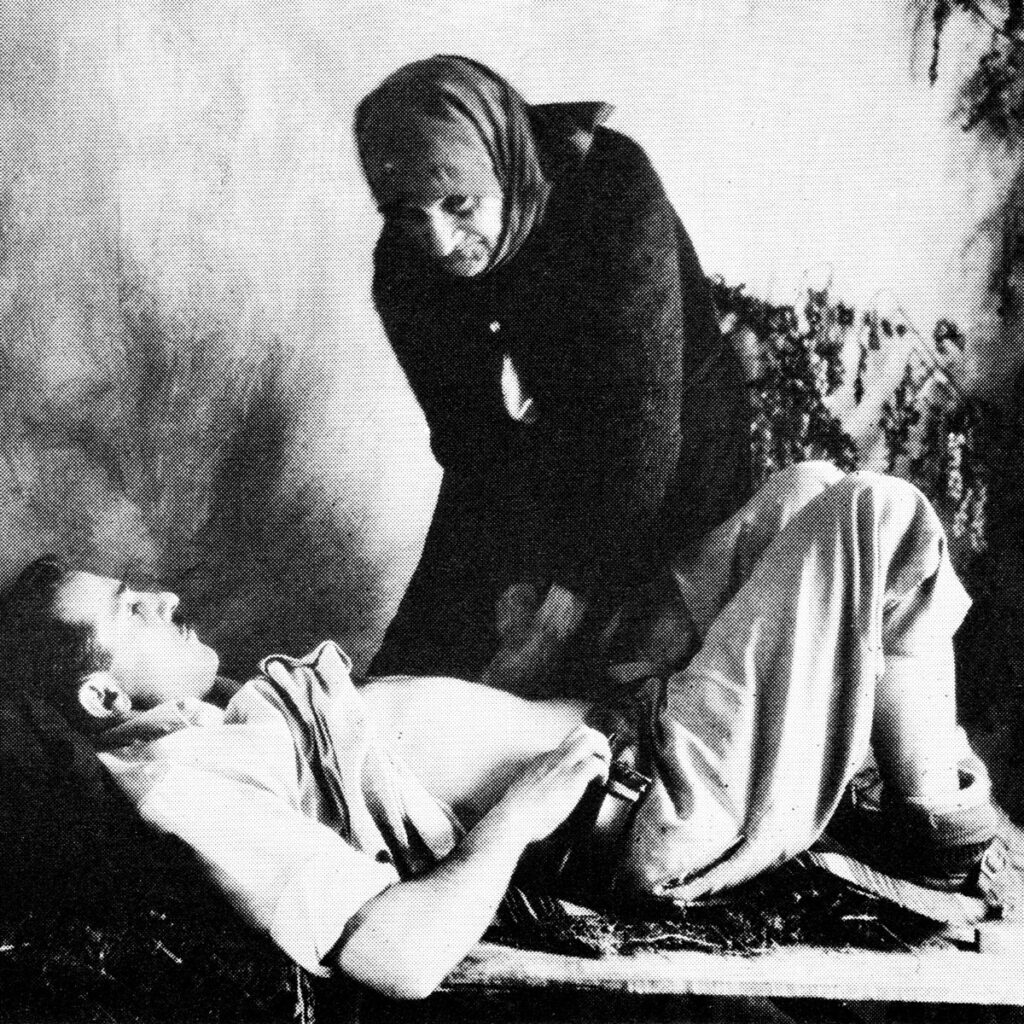Svetlana Spajić has spent the last twenty-five years visiting villages in the Balkans, absorbing the words passed down from generation to generation, as well as the decasyllabic cadences of traditional folk tunes. Hers is a voice of such unique power that spiritual uplift and deep pathos simultaneously imbue the listener when she’s in full flight. Alongside her in Gordan are drummer Andi Stecher and noise-maker Guido Möbius, a pan-European experimental trio who hail from Serbia, Austria and Germany, respectively. Gordan brings together resonant acoustic drums, unpredictable feedback and Spajić’s remarkable voice on tracks like ‘Barabinska’ from the band’s self-titled second album. Stecher’s drums and percussion – although deliberately off-kilter in a free jazz kind of a way on ‘Selo Moje’ – otherwise mediates between Guido Möbius’s irregular noise interjections and Spajić’s astonishing set pieces.
Taking folk songs passed down by oral tradition and mixing them up with electronic music is not without precedent. In 2003, Scottish Celtic fusionist Martyn Bennett was sampling – and in some cases meeting and recording with – Scottish travellers and Gaelic west coast singers for his landmark album Grit. More recently, we have artists such as cello and violin duo Fran & Flora from London bringing well-researched Eastern European klezmer tradition into new Fourth World dimensions with an array of pedals strewn across the stage floor. Stretching the definition somewhat, you could even argue that the most successful electronica record of all time – Moby’s 1999 album Play – harnessed America’s Black folk tradition, i.e, the blues.
If musical wisdom married to sonic futurism is not unprecedented, then few acts make it sound as viscerally moving as Gordan. Their work outside of the band certainly helps to bring with it a wealth of collaborative experience: Stecher has worked with Kenya’s Orchestre Les Mangelepa and the late Senegalese drummer Doudou N’Diaye Rose to name but two, while Möbius runs Autopilot Music Publishing, representing artists like Nicholas Bussmann, Black To Comm and Reinhold Friedl. Spajić has collaborated Marina Abramović and Robert Wilson, and musicians Anohni Hegarty and William Bansinski; she also appeared on last year’s excellent Lenhart Tapes album, Dens (on the same label, Glitterbeat), which also sets traditional folk songs against industrial rhythmic loops, spliced together by Belgrade ethno-noise exponent Vladimir Lenhart performing with two cassette decks.
Gordan is more an unorthodox band situation, with these songs presumably played live in the studio, creating a remarkable tension between the three players as well as a surprising amount of space behind the noise. Musically, it’s diverse, where a song like ‘The Bell Is Buzzing’ could almost be interpreted as a pop song if you were to really squint, while ‘Šara’ is pounding and defiant and ‘How A Mountain Fairy Divided The Two Jakšić Brothers’ is more liturgical in its delivery. Meanings might be obscured, but the trochaic metrical structures of these folk songs lend themselves well to the unusual setup Gordan have fostered with their instruments and Spajić’s voice. It’s an album that defies classification and bursts with existential meaning, with all the death and pain that go hand in hand with that percolating out of its ancient verses. But perhaps the most extraordinary thing is that tradition and modernity cohere so effectively, an arrangement that rarely augurs in real life.


